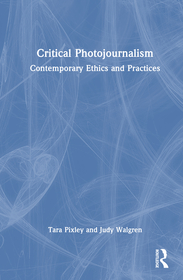
Advancing Physics Education
Innovations from Early Learning to Higher Education
Series: Challenges in Physics Education;
- Publisher's listprice EUR 117.69
-
48 811 Ft (46 487 Ft + 5% VAT)
The price is estimated because at the time of ordering we do not know what conversion rates will apply to HUF / product currency when the book arrives. In case HUF is weaker, the price increases slightly, in case HUF is stronger, the price goes lower slightly.
- Discount 12% (cc. 5 857 Ft off)
- Discounted price 42 954 Ft (40 909 Ft + 5% VAT)
Subcribe now and take benefit of a favourable price.
Subscribe
48 811 Ft

Availability
Not yet published.
Why don't you give exact delivery time?
Delivery time is estimated on our previous experiences. We give estimations only, because we order from outside Hungary, and the delivery time mainly depends on how quickly the publisher supplies the book. Faster or slower deliveries both happen, but we do our best to supply as quickly as possible.
Product details:
- Publisher Springer Nature Switzerland
- Date of Publication 9 October 2025
- Number of Volumes 1 pieces, Book
- ISBN 9783031942068
- Binding Hardback
- No. of pages292 pages
- Size 235x155 mm
- Language English
- Illustrations IX, 292 p. 102 illus., 87 illus. in color. Illustrations, black & white 700
Categories
Long description:
"
This book offers a rich selection of papers from a conference dedicated to the advancement of physics education at all levels. Addressing the pressing need for innovation in teaching and learning, the contributions span pre-school to higher education, showcasing a broad spectrum of innovative proposals aimed at enriching the physics learning experience.
The contributions reflect key thematic tracks, including innovative strategies and pathways to improve physics education, lab work and experiments in physics education, digital technologies in physics education, and school-university collaborations. These tracks provide a cohesive structure, while the individual contributions present research-informed insights and exemplary teaching practices that resonate across age groups and educational contexts.
For pre-school and primary learners, the papers highlight creative learning pathways, hands-on activities, and play-based strategies that introduce young minds to fundamental physical concepts in an engaging and accessible way. At the secondary level, the focus shifts to inquiry-based teaching practices, lab work, and the integration of digital tools that develop students’ critical thinking skills and deepen their understanding of core physics principles.
For higher education, the papers present advanced experimental techniques and interdisciplinary approaches, demonstrating effective strategies for teaching complex concepts to university students as well as novel methods for fostering connections between schools and universities, emphasizing how collaboration enhances teaching practices and supports student learning.
Additionally, the contributions examine how physics education research informs these practices, ensuring that the methods presented are not only innovative but also evidence-based. Grounded in physics education research, the book bridges the gap between theory and practice. Many of the contributions draw on real-world classroom experiences, offering practical applications alongside research findings. This makes the book an invaluable resource for educators, researchers, and policymakers seeking to advance physics education across all levels.
" MoreTable of Contents:
"
Challenges and Selected Solutions in Physics Education Generated by Artificial Intelligence.- Fundamental Research in Physics and its Role in School.- Remaking Physics Teacher Professional Learning: Designing a National Upskilling Programme for Physics Teachers.- Use of Quantitative Methods in Physics Education Research: Searching for New Perspectives to Inform Theory and Practice.- Is it Possible to Teach Nanoscience-Nanotechnology Content to Kindergarten Students?.- Theatrical Activities on Magnetic Phenomena for Scientific Learning in Primary School.- Introduction to Measurement Uncertainties for Middle School Classes.- Conceptual Outcomes Implementing Different Approaches to Optical Spectroscopy in Secondary School.- Effectiveness of Minipix Detector Activities Dispelling High School Students’ Misconceptions About Radioactivity and Ionising Radiation.- First Outcomes of a Teaching-Learning Sequence on Quantum Information and Computation.- Cultural Understanding of Physics: Instruments and Methods.- School-University Collaborations: An Exploration of Issues and Possible Solutions.- Enhancing University First-Year Physics Education: Impact of Interactive-Engagement Over Traditional Approaches Visualised Via Open Modern Data Science.- A Scaffolded Curriculum to Foster Experimental Skills Acquisition in an Introductory Physics Lab Course.- Study of the Free Damped Oscillations of an Elastic Rubber Band Using a Smartphone.- Teaching the Subtleties of Entanglement Via the Delayed Choice Two-Slit Experiment Wit Polarizers.- Developing Augmented Reality (AR) Teaching Tools for Undergraduate Physics: The Virtual Optical Table.
" More




